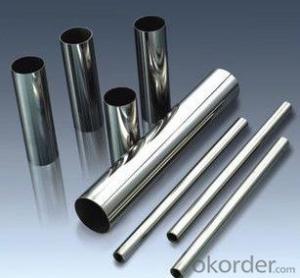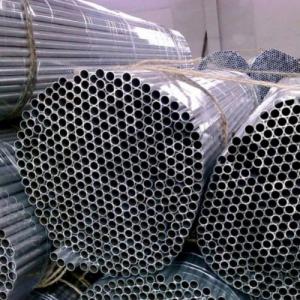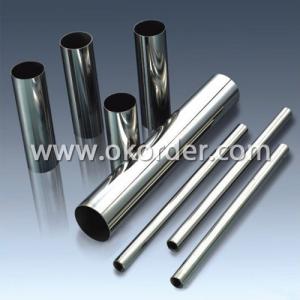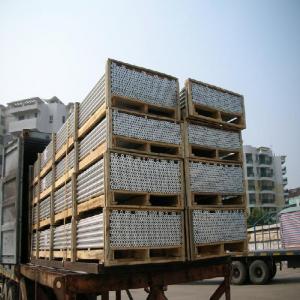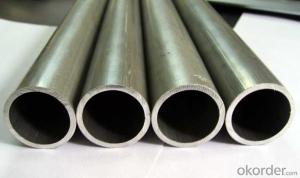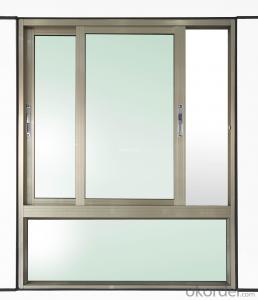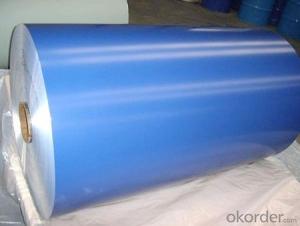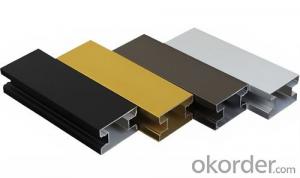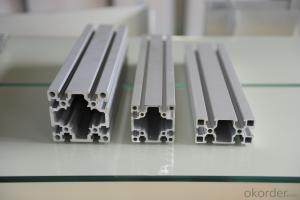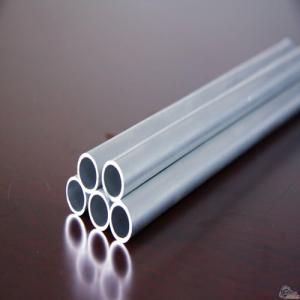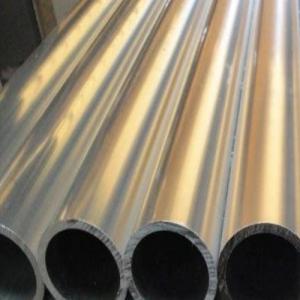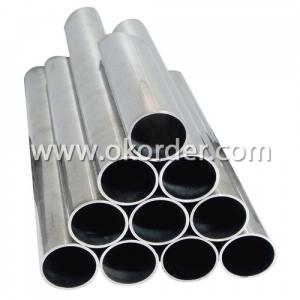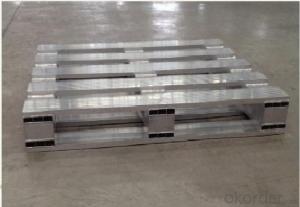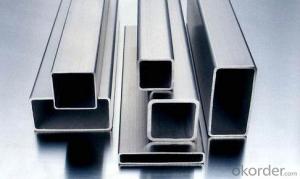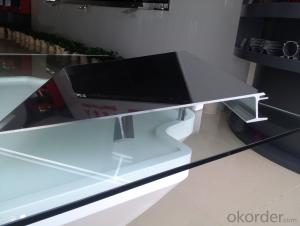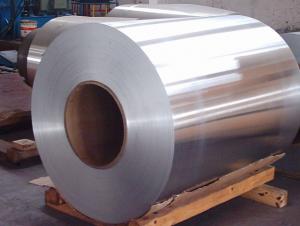Aluminum Seamless Tube Alloy 7000
- Loading Port:
- China Main Port
- Payment Terms:
- TT OR LC
- Min Order Qty:
- -
- Supply Capability:
- -
OKorder Service Pledge
Quality Product, Order Online Tracking, Timely Delivery
OKorder Financial Service
Credit Rating, Credit Services, Credit Purchasing
You Might Also Like
Specification of aluminum tube/pipe
Alloy: | 2A12, 2014, 2014A, 2017A, 2024, 3003, 5005, 5754, 5083, 7020, 7075 etc |
Temper: | O F T3-T6 |
Out diameter: | 15-220mm |
Wall thickness: | 1.0-60mm |
Length: | 6000mm or as need |
We can provide a full range services including: extrusion, anodizing, machining . we produce aluminium extrusions, aluminum tube, seamless aluminum tube, aluminum bar, aluminum angle, aluminum channels, and industry profiles, in a wide range of commercial alloys, including 1050, 1200, 2A12, 2014, 2014A, 2017A, 2024, 3003, 5083, 6005A, 6060, 6061, 6063, 6063A, 6082, 6463, 7020, 7075 subject to temper requirements and product specification.
- Q:What is the average lifespan of aluminum pipes?
- The average lifespan of aluminum pipes can vary depending on various factors such as the quality of the material, the environment in which they are used, and the maintenance and care they receive. Generally, aluminum pipes have a relatively long lifespan and can last for several decades. With proper installation, regular inspections, and timely repairs, aluminum pipes can serve their intended purpose for 30 to 50 years or even longer. However, it is important to note that external factors such as corrosion, exposure to harsh chemicals, or extreme temperature variations can significantly impact the lifespan of aluminum pipes. Therefore, regular maintenance and periodic evaluations are essential to ensure the longevity and performance of aluminum pipes.
- Q:What is the chemical composition of aluminum pipes?
- Aluminum pipes are primarily composed of aluminum, which is a chemical element with the symbol Al and atomic number 13. Aluminum is a lightweight and versatile metal known for its corrosion resistance, high thermal conductivity, and excellent strength-to-weight ratio. It is commonly alloyed with other elements to enhance its properties. Some common alloying elements used in aluminum pipes include copper, silicon, magnesium, and zinc. These alloying elements can improve the strength, hardness, and machinability of the aluminum pipe. The specific chemical composition of aluminum pipes can vary depending on the desired properties and application requirements.
- Q:What are the different polishing techniques for aluminum pipes?
- Some common polishing techniques for aluminum pipes include mechanical polishing, chemical polishing, and electrochemical polishing. Mechanical polishing involves using abrasive materials like sandpaper or polishing wheels to remove surface imperfections and create a smooth and shiny finish. Chemical polishing utilizes chemical solutions to dissolve a thin layer of the aluminum surface, resulting in a polished appearance. Electrochemical polishing, also known as electropolishing, involves immersing the aluminum pipe in an electrolyte solution and applying an electric current to remove surface irregularities and achieve a polished look.
- Q:Need to know the answer urgently. If anyone knows, please answer, thank you.........Supplement: aluminum without primer spraying, spray and spray paint, paint is 22 dilute acid. After spraying up, adhesion is good, not easy to fall, what formula, or in paint which need to add what?
- Only the use of acrylic polyurethane finish, acrylic polyurethane has good weatherability and chemical resistance, but because the paint itself has tiny pores in spraying primer and paint case, after long-term exposure to the sun and rain and other environment, moisture will penetrate the film, and the aluminum contact formation of aluminide, resulting in paint peeling off.The above suggestions for your reference, thank you!
- Q:Are aluminum pipes suitable for wastewater treatment facilities?
- Yes, aluminum pipes are suitable for wastewater treatment facilities. They are corrosion-resistant and can handle the harsh chemicals and corrosive elements present in wastewater. Additionally, aluminum pipes are lightweight and durable, making them easy to install and maintain in such facilities.
- Q:What are the typical pressure ratings for aluminum pipes for HVAC systems?
- The pressure ratings of aluminum pipes utilized in HVAC systems can differ based on the particular usage and industry norms. Nevertheless, pressure ratings for aluminum pipes in HVAC systems usually span from 150 psi to 500 psi. These ratings guarantee the aluminum pipes' ability to endure the pressure and strain linked with HVAC system operation, encompassing the movement of refrigerants, air, and other fluids. Consulting industry guidelines, manufacturer specifications, and relevant building codes is crucial for determining the suitable pressure ratings for aluminum pipes in HVAC systems.
- Q:What are the advantages of using aluminum pipes?
- There are several advantages of using aluminum pipes. Firstly, aluminum pipes are lightweight, making them easier to handle and transport compared to other metals such as steel. Secondly, aluminum is corrosion-resistant, ensuring that the pipes have a longer lifespan and require less maintenance. Additionally, aluminum pipes have excellent heat conductivity, making them suitable for applications that involve heat transfer. Lastly, aluminum is a highly recyclable material, making it an environmentally friendly choice.
- Q:What are the different joining methods for aluminum pipes?
- There are several joining methods for aluminum pipes, including welding, brazing, and mechanical connections. Welding involves melting the edges of the pipes and fusing them together using a filler material. Brazing involves heating the pipes and using a lower melting point filler material to join them. Mechanical connections include using fittings, clamps, or compression fittings to join the pipes without the need for heat or filler material.
- Q:Are aluminum pipes suitable for chemical processing plants?
- Depending on the specific requirements and conditions of the plant, aluminum pipes can be a suitable option for chemical processing plants. They offer several advantages in this application. Firstly, aluminum is lightweight, making it easier to handle and install compared to materials like steel. This can help reduce labor and transportation costs during installation. In addition, aluminum pipes have good corrosion resistance properties, which is crucial in chemical processing plants where exposure to corrosive chemicals is common. Aluminum naturally forms a protective oxide layer on its surface, preventing further corrosion. This layer can be further enhanced through surface treatments to improve resistance to specific chemicals. Furthermore, aluminum pipes have excellent thermal conductivity, facilitating efficient heat transfer in chemical processes that involve heating or cooling. This can lead to energy savings and improved operational efficiency. However, it's important to note that aluminum pipes may not be suitable for all chemical processing applications. They can react with certain aggressive chemicals or extreme conditions, such as high temperatures or extreme pH levels. In such cases, alternative materials like stainless steel or specialty alloys may be more appropriate. Therefore, it is crucial to thoroughly evaluate the specific requirements, chemicals involved, and operating conditions before using aluminum pipes in a chemical processing plant. Consulting with experts or engineers is necessary to determine their suitability and any necessary precautions or limitations.
- Q:Are aluminum pipes suitable for food processing applications?
- Indeed, aluminum pipes prove to be appropriate for food processing applications. The inherent characteristics of aluminum, such as its lightweight nature and resistance to corrosion, render it exceptionally well-suited for implementation within the realm of the food industry. Furthermore, its exceptional thermal conductivity facilitates the efficient transmission of heat during the processing stage. In terms of hygiene, aluminum pipes boast an advantage as they can be effortlessly cleaned and sanitized, thereby complying with the stringent cleanliness standards mandated by food processing facilities. Moreover, the non-toxic nature of aluminum ensures that it does not react with the food, thereby upholding the integrity and quality of the processed products. All in all, the utilization of aluminum pipes in food processing applications is a dependable and pragmatic choice.
1. Manufacturer Overview |
|
|---|---|
| Location | |
| Year Established | |
| Annual Output Value | |
| Main Markets | |
| Company Certifications | |
2. Manufacturer Certificates |
|
|---|---|
| a) Certification Name | |
| Range | |
| Reference | |
| Validity Period | |
3. Manufacturer Capability |
|
|---|---|
| a)Trade Capacity | |
| Nearest Port | |
| Export Percentage | |
| No.of Employees in Trade Department | |
| Language Spoken: | |
| b)Factory Information | |
| Factory Size: | |
| No. of Production Lines | |
| Contract Manufacturing | |
| Product Price Range | |
Send your message to us
Aluminum Seamless Tube Alloy 7000
- Loading Port:
- China Main Port
- Payment Terms:
- TT OR LC
- Min Order Qty:
- -
- Supply Capability:
- -
OKorder Service Pledge
Quality Product, Order Online Tracking, Timely Delivery
OKorder Financial Service
Credit Rating, Credit Services, Credit Purchasing
Similar products
New products
Hot products
Hot Searches
Related keywords
